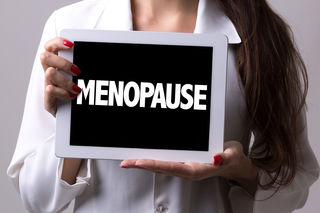Menopause
The Stages of Menopause and How They Affect Your Sleep
Many women struggle with sleep in menopause. Here's why.
Posted September 5, 2019 Reviewed by Matt Huston
Menopause is one part of a lifelong shift in women’s hormone balance. Through each phase of her life, a woman’s sleep and health face different risks and challenges.
In my last post, I discussed how the hormones estrogen and progesterone influence sleep and other aspects of women’s health. Today I want to dig a little deeper and break out the stages of menopause and the sleep difficulties that arise within each.
Pre-menopause and sleep
During a woman’s reproductive years, when she is not experiencing the symptoms of menopause, she is in what is technically considered pre-menopause. Hormones shift throughout women’s lives, and changes in estrogen, progesterone and other hormones can lead to recurring sleep problems well before the transition to menopause actively begins.
Fluctuating estrogen and progesterone, especially shortly before and during menstruation, cause difficulty sleeping, as well as headaches, cramping, anxiety, and low mood—all symptoms that can compound sleep problems. I see many patients in their 20s and 30s experience insomnia and other sleep troubles linked to their monthly menstrual cycle.
During pregnancy, women frequently experience significant sleeplessness—even if they’ve been sound sleepers in their pre-pregnant lives. Changes to the body and intensely shifting hormone levels lead to many pregnant women feeling sleepy during the day, and restless and uncomfortably awake throughout the night.
In 2017, the Centers for Disease Control released new scientific findings about the sleep activity and sleep quality of women throughout the different stages of menopause.
For pre-menopausal women, the study found:
- Nearly one-third—32.5 percent—sleep less than an average of 7 hours a night. That’s broadly on par with the estimates of the sleep habits of the general population.
- Among pre-menopausal women, 16.8 percent regularly have trouble falling asleep—four or more times in a week.
- Almost one-quarter of premenopausal women—23.7 percent—have trouble routinely staying asleep throughout the night.
- And nearly half—47 percent—wake feeling un-rested at least four days a week.
Perimenopause and sleep
This is the transitional stage that leads eventually to menopause. Often, for women, perimenopause begins in their 40s—but I’ve had several patients begin to experience the signs of perimenopause in their mid-to-late 30s. The amount of time a woman spends in perimenopause can vary widely—this stage of the menopause transition typically lasts between 3-5 years, but it can last for as long as 10.
It’s throughout perimenopause that many of the symptoms of menopause begin to flare. During perimenopause, levels of estrogen, progesterone, and testosterone start to decline significantly—but also fluctuate sharply along with that overall decline. Estrogen levels in particular may shift erratically during perimenopause, and this hormone’s perimenopausal highs and lows can contribute to a range of symptoms—from hot flashes and night sweats to anxiety to headaches—that interfere with both sleep and waking performance.
In my practice, I see many women for the first time when they’re experiencing the perimenopause's challenges to their sleep routines, as physical, mental, and emotional symptoms that begin to disrupt their sleep on a regular basis.
According to the 2017 CDC survey, sleep problems tend to increase significantly during perimenopause.
- More than half of perimenopausal women—56 percent—sleep less than 7 hours a night, on average. That’s a big jump from the third of pre-menopausal women who are sleeping less than 7 hours nightly.
- Nearly one-quarter—24.8 percent—of perimenopausal women say they have trouble falling asleep four or more times in a week.
- Even more common than trouble falling asleep? Difficulty staying asleep. Among women in perimenopause, 30.8 percent say they have trouble staying asleep at least four nights a week.
- Half of perimenopausal women—49.9 percent—wake in the morning feeling tired four or more days in a week

Post-menopause and sleep
A woman has reached menopause when she has not had a period for 12 consecutive months. Beyond this point, a woman is now in post-menopause. What happens to hormone levels at this point? Progesterone—a particularly sleep-friendly hormone—is no longer produced by a woman’s body after she stops menstruating.
Estrogen, with its sleep-protective benefits, continues to be produced at very low levels once fluctuations subside. The symptoms that begin for many women during menopause—hot flashes, headaches and other physical pain, anxiety, lack of focus, mood swings—often ease after a woman reaches post-menopause.
That’s true for sleep problems, too. With the settling of hormonal fluctuations, insomnia and other sleep problems may gradually improve for some women after menopause. But the post-menopausal experience—like each phase of the menopausal transition—can vary greatly from woman to woman.
I’ve treated women who struggle deeply with sleep and performance throughout perimenopause, and who relatively quickly find a “new normal” and improved sleep as they move into post-menopause. But I also see many women continue to wrestle with poor-quality sleep and contend with new sleep disorders, such as obstructive sleep apnea, in their post-menopausal lives.
As the recent CDC study shows, a great many women during their post-menopausal years continue to struggle with sleep issues—and the symptoms of insomnia may actually increase:
- Sleeping fewer than 7 hours a night on four or more nights a week occurs among 40.5 percent of post-menopausal women.
- For post-menopausal women, symptoms of insomnia become somewhat more common than during perimenopause, with 27.1 percent having regular trouble falling asleep and 35.9 percent having routine difficulty staying asleep throughout the night.
- More than half—55.1 percent—are sleeping poorly enough to wake feeling tired, not rested, four or more times a week.
In a recurring series over the next several weeks, I’ll discuss the role of sleep in the symptoms of menopause and in menopause-related health risks. I’ll also talk about effective therapies for menopause and its sleep-related issues—including how you can treat sleep and menopause symptoms naturally, with supplements.




